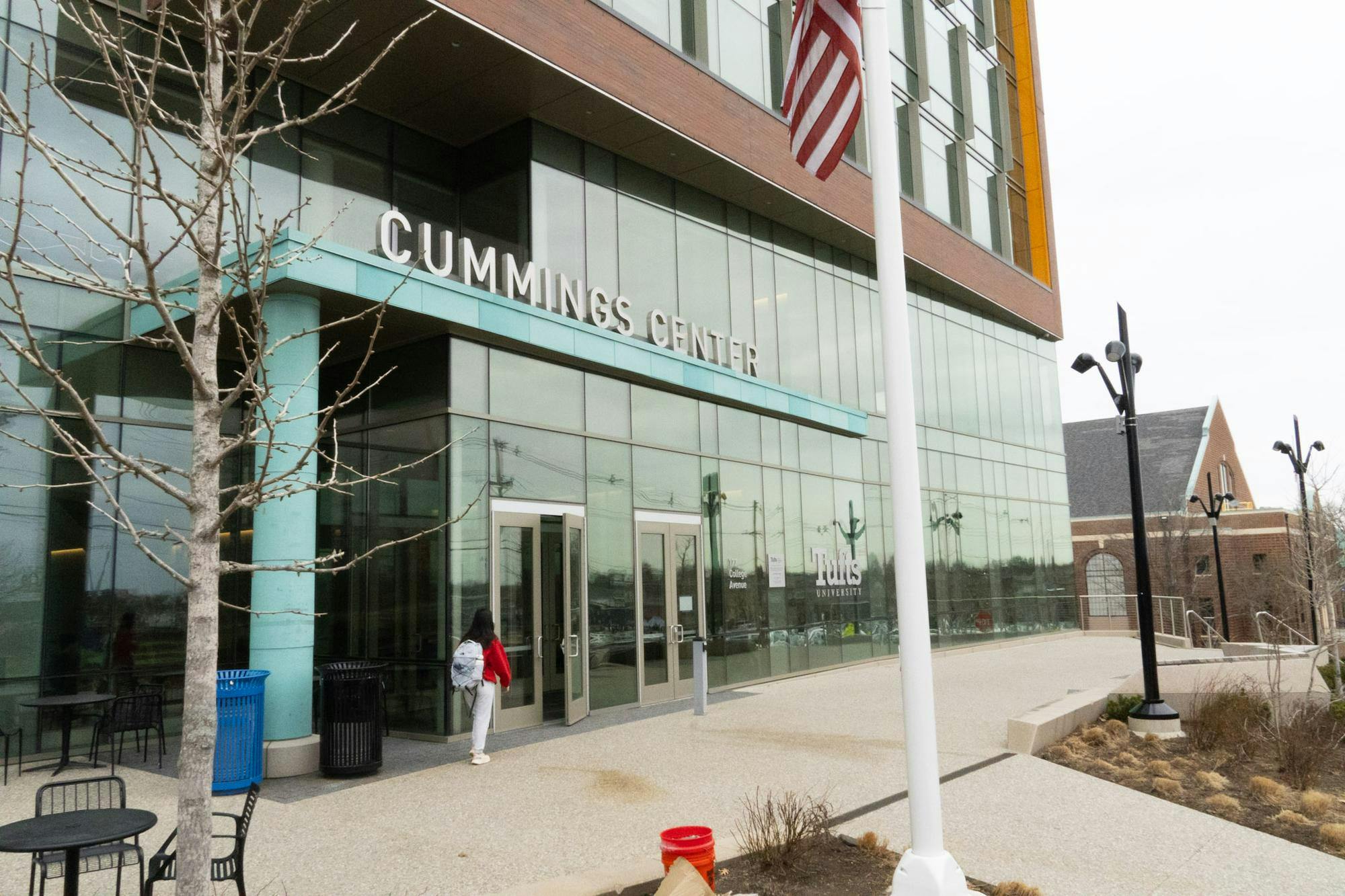On March 3, I watched in horror as students packed into the Joyce Cummings Center ballrooms to support the vehemently antisemitic resolutions proposed by the Coalition for Palestinian Liberation at Tufts before the Tufts Community Union Senate. Several of the resolutions were directly inspired by the boycott, divestment and sanctions movement. The resolutions called on Tufts to “divest from Israeli Companies [and] to divest from companies invested in Israeli Apartheid and with ties to Israel” and “[urged] the Tufts Dining office to stop selling any Israeli products immediately and indefinitely.” BDS has been called antisemitic because it questions Israel’s right to exist and singles out Israel for its treatment of its Arab citizens, when minorities in some countries suffer far more. Furthermore, BDS has member groups including Hamas, the U.S-designated terrorist organization that slaughtered, kidnapped and reportedly raped numerous women and children on Oct. 7.
In the nearly five-hour Senate meeting, students backing CPLT frequently interrupted those opposing the resolutions. The Senate didn’t effectively enforce appropriate behavior and conduct when the meeting began. Only after Jewish speakers were interrupted repeatedly did they remind students to abide by the Senate’s guidelines.
The meeting got off to a poor start: TCU Senate read an unpublicized version of the first resolution without informing the opposition. The first resolution, antisemitic due to its strong link to BDS, asked for Tufts to end all approval for external study abroad programs in Israel. Although it was later corrected, not only did this mistake demonstrate the Senate’s lack of preparation, but it also forced Jewish students to listen to the antisemitic resolution again. This mistake set the stage for continued instances of the Senate’s unprofessional handling of the meeting.
Throughout, I was stunned by how much time was spent debating simple grammatical changes. The “Non-Substantive Amendments” portion of each resolution did little but prolong the tense and emotional hearing. TCU Senators’ time would be better spent encouraging ethical, diplomatic and appropriate behavior instead of inspecting Oxford comma usage, especially in meetings with such important implications for so many students.
TCU Senate’s mishandling of the proceedings also included failing to direct authors of resolutions to answer questions thoroughly. Numerous inquiries into the resolutions’ statements, reasonings and language were sidestepped and not addressed. Supporters of the resolutions were able to circumvent many questions about the horrific events of Oct. 7, reasoning that Hamas’ attack on Israel was not explicitly mentioned in their resolutions and thus was not relevant to the hearing. They also didn’t directly clarify which part of Israel they believe is occupied. This is ridiculous, seeing as comments made by Students for Justice in Palestine, a CPLT member organization, following Oct. 7 doubtlessly prompted University President Sunil Kumar’s response. Additionally, the Hamas attack on Oct. 7 directly instigated the current war with which supporters of the resolutions have taken issue, demonstrating the relevance of these questions. Supporters shouldn’t be able to pick and choose events that best fit their agenda. The Senate's draconian policies surrounding the scope of questions prevented objecting students from rightfully condemning the heinous acts committed by Hamas on Oct. 7. As a mediator for debate, the Senate should have intervened to ensure that the group putting forth and defending the resolutions accurately and appropriately answered relevant questions.
It appeared that each speaker arguing against the resolutions spoke respectfully and considerately. Conversely, the resolutions’ supporters, directing their attention towards the opposition, were consistently rude and dismissive toward Jewish students. The Senate refrained from interfering when arguments for the resolutions turned into personal attacks outside the debate’s time. For example, I witnessed Jewish students in the opposition being called “racist” and “antisemitic,” fabricated lies that the TCU Senate condoned.
Other double standards were visible in plain sight: One student in the opposition spoke about how it felt to be Jewish at Tufts since Oct. 7, given SJP’s actions. The Senate implied this was irrelevant. When someone in support of the resolutions accused the opposition of using “Jim Crow filibuster tactics,” that was deemed relevant. Mere minutes after this accusation, they used time allocated for opposition speakers to amend the resolution, cutting into debate time in the same fashion that they had called “Jim Crow.” When a Jewish speaker expressed sympathy for what a Palestinian student was going through, he was relentlessly booed and told later in the evening by the Senate to bring the conversation back on topic. Finally, Senate moderators failed to cut off numerous speakers once they had spoken for one minute, which I noticed overwhelmingly occurred for pro-resolution speakers. This is yet another example of how the Senate neglected to enforce the rules during a hearing of such great importance.






